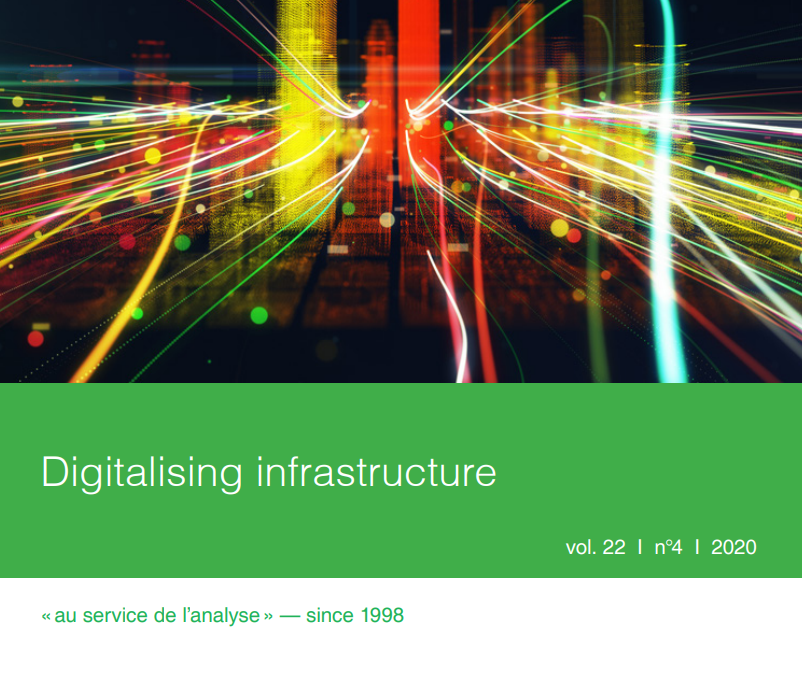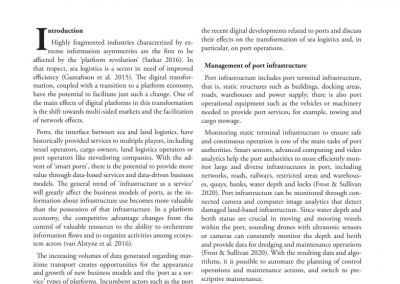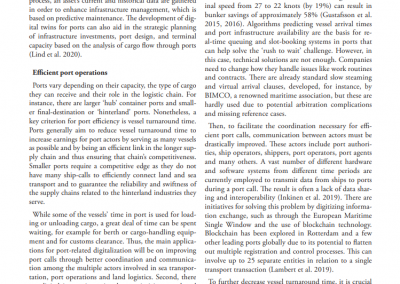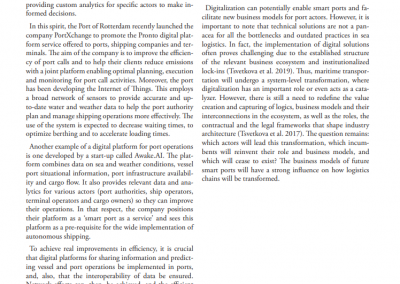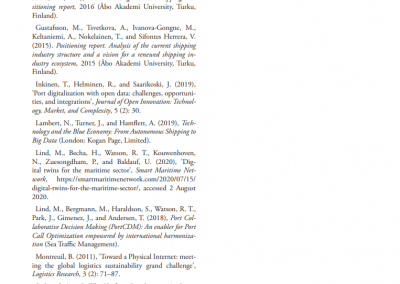Network Industries Quarterly has been published four times a year since 2008. One of its special issues focuses on digitalising infrastructure. This special issue includes also the paper written by the representatives of Åbo Akademi University (Finland). Åbo Akademi University is a partner of project Baltic Loop and leads working package ‘Business models for smart and sustainable sea’.
Tsvetkova, Gustafsson and Wikström identify how digitalisation is transforming the infrastructure of ports and how, as a result, port managers are under growing pressure to provide prompt service.
A little insight into the article:
Highly fragmented industries characterized by extreme information asymmetries are the first to be affected by the ‘platform revolution’ (Sarkar 2016). In that respect, sea logistics is a sector in need of improved efficiency (Gustafsson et al.2015). The digital transformation, coupled with a transition to platform economy, have the potential to facilitate just such a change. One of the main effects of digital platforms in this transformation is the shift towards multi-sided markets and the facilitation of network effects. (..)
The increasing volumes of data generated regarding maritime transport creates opportunities for the appearance and growth of new business models and the ‘port as a service’ types of platforms. Incumbent actors such as the port authorities have a choice to either proactively use the enabling technologies to reinvent their own business models or they risk having their value proposition commoditized in the fourth industrial revolution. In this paper, we review the recent digital developments related to ports and discuss their effects on the transformation of sea logistics and, in particular, on port operations.
>> This article is funded by the project Baltic Loop.
Read the Full Article >> Here (p.7-p.10)

